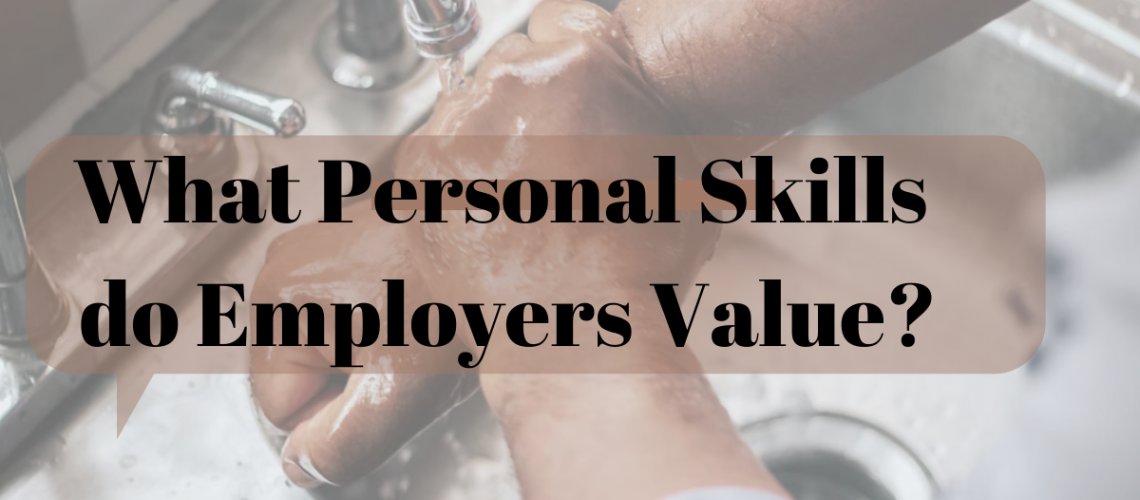The right hard skills get you invited to an interview, but the soft skills get you through the day job. Here we explain how you can increase your personal skills and demonstrate them in the application.
Definition: what are personal skills?
Personal competencies, also known as soft skills , determine how you behave with yourself. Personal competencies are located at the emotional and communicative level and are related to individual, social and methodological skills, such as ” body language , empathy , willingness to learn and self-confidence”.Literally translated, personal competencies mean “soft skills.”
The opposite of soft skills are hard skills. This is meant the technical know-how that is accredited certificates. This includes “school and college degrees, job references, and other written evidence”.
This shows that you are an expert in a certain area, but says nothing about how you will fit into your new work environment and associated company structures in the future.
Technical qualifications alone are often no longer sufficient for career success. When selecting personnel, emphasis is also placed on personal skills.
This means skills that go beyond technical knowledge. Nowadays, anyone who wants to make a good impression in an interview can hardly avoid checking her personal skills.
HR managers will always interview you about your strengths and weaknesses in the job interview, regardless of your specialized knowledge. People who have a wide range of social skills are considered emotionally intelligent.
People with such abilities not only know how to deal with their own feelings but can also empathize with others. You are self-reflective, highly motivated, and know how to exchange ideas on a communicative level.
Personal competencies include a wide range of interpersonal abilities.
Probably the most important skills in professional life include:
- Ability to work in a team, ability to cooperate: Ability to work together
- Communicative skills
- Self-discipline and endurance: skills for self-control and perseverance
- Ability to deal with conflicts and willingness to compromise: Analyze the competition and find a solution.
- Assertiveness: competence to lead
In addition to the above social and personal skills, there are also methodological skills. This includes, for example : dealing with new media and all the associated skills to organize projects large and small. Methodological skills are strongly linked to the respective job description.
How can you improve your personal skills?
Personal skills and dealing with them means self-reflection. If you deal specifically with his competencies, you’ll suddenly notice things about yourself that you didn’t notice before.
You will observe how you treat yourself and others and discover certain behaviors in the process.
If you know what skills contribute to a successful coexistence, you will find an inner balance and self-confidence that everyone around you and you can benefit from. To develop personal skills, start with observation.
Observe how people behave in certain situations. Do you discover personal skills in them? Now try to figure out how you look to other people . For example, you can plan to smile at five completely new people on the street every day.
You will always discover new personal skills. Be tolerant and understanding, which gives you two more personal skills.
If you observe without judging, you leave the beaten track in your head, which leads to a better coexistence.
The ability to observe is also a personal skill. A second aspect of observation is introspection. An open and honest look in the mirror is not so easy and requires the viewer to critically confront himself.
Our self-perception does not always correspond to the impression that other people have of us, for example family members, friends or colleagues. Here your expertise is developed in the critical faculties. In order to recognize your own strengths and weaknesses as good, you must proceed methodically.
For example, ask yourself what tasks you particularly enjoy and don’t enjoy doing. Now think about what personal skills go well with him. For example, if you enjoy playing football, possibly at a club, you are probably not only physically fit, but also a team player and loyal.
If other people like to come up to you to show you their heart, you are probably very communicative and have a high level of empathy.
During your self-analysis, you will discover that you already have several personal skills. In the next step, you need to ask yourself what skills you need for your career goals. This analysis will help you identify which competencies you still need to work on. How do you find out which skills you need for your dream job? You can read job advertisements or take a look at our professional world. There you will find a wide variety of professions and you will also find out what soft skills you need for them.
How can you demonstrate your personal skills in the application process?
Convince yourself in your cover letter by describing what skills you have. Study the job description carefully and find out what the requirements and skills are for your dream job. You will often find required personal skills directly in the profile description.
In the second phase of the application process, the telephone interview, the human resources manager will also qualify such statements as special personal skills.
Finally, the interview follows, in which you can introduce yourself and your skills. People decision makers will perceive personal skills like friendliness, self-confidence, and loyalty directly from you.
